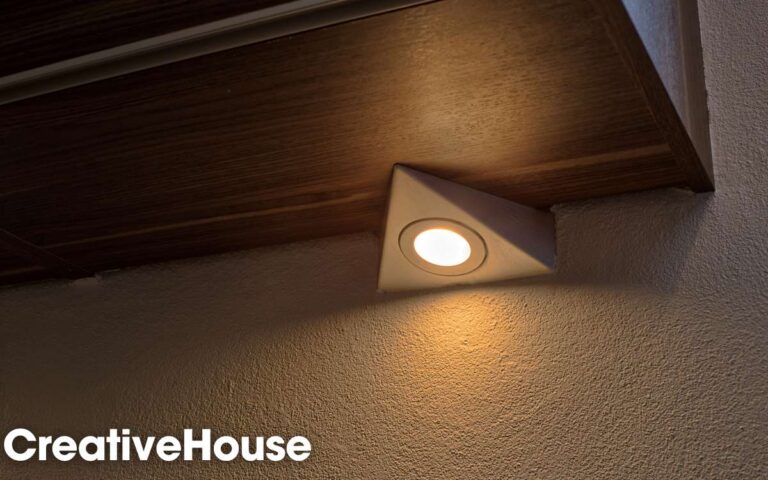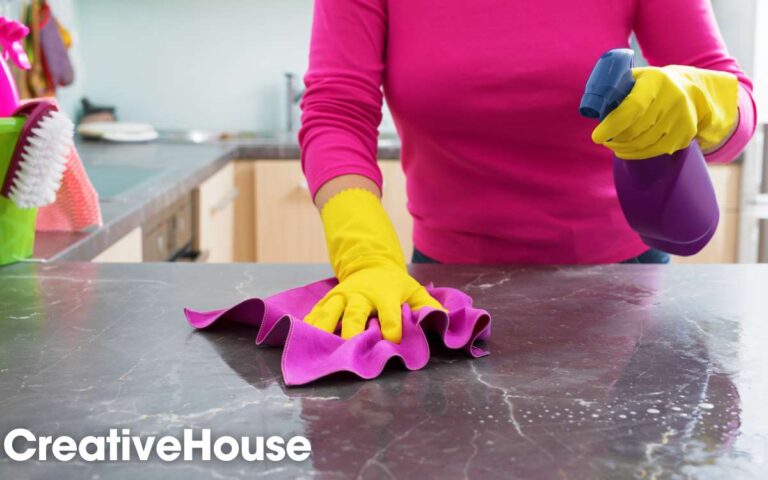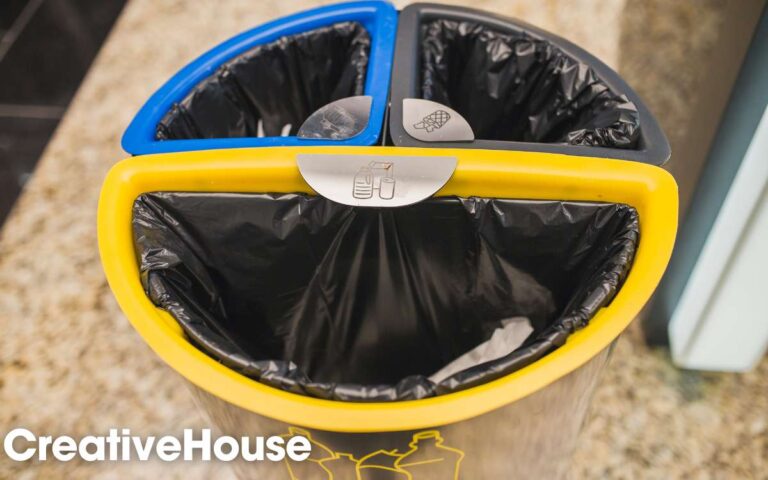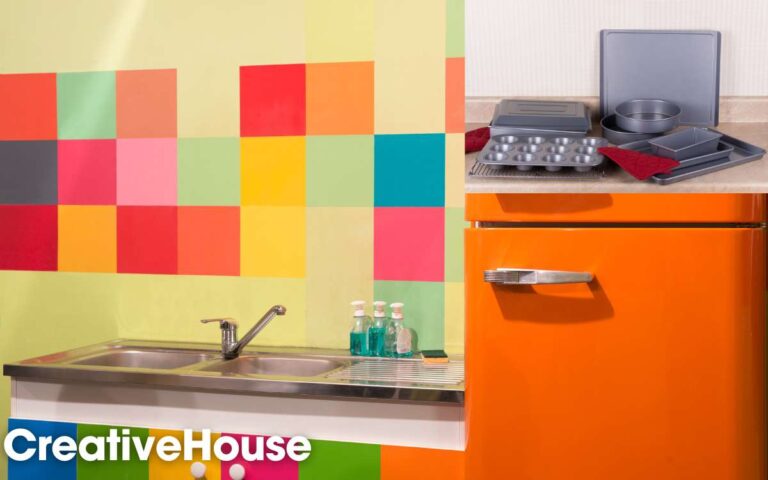For reasons of hygiene and appearance, kitchen countertops need to be kept clean. The possible impacts of using particular household cleansers on various countertop materials, however, should be considered. Oven cleaners are made of strong chemicals that can harm and discolor various surfaces, as well as pose a risk of staining and etching of kitchen counterparts.
This article will take a close look at how oven cleaner interacts with kitchen countertops and what should be the preventive measure.
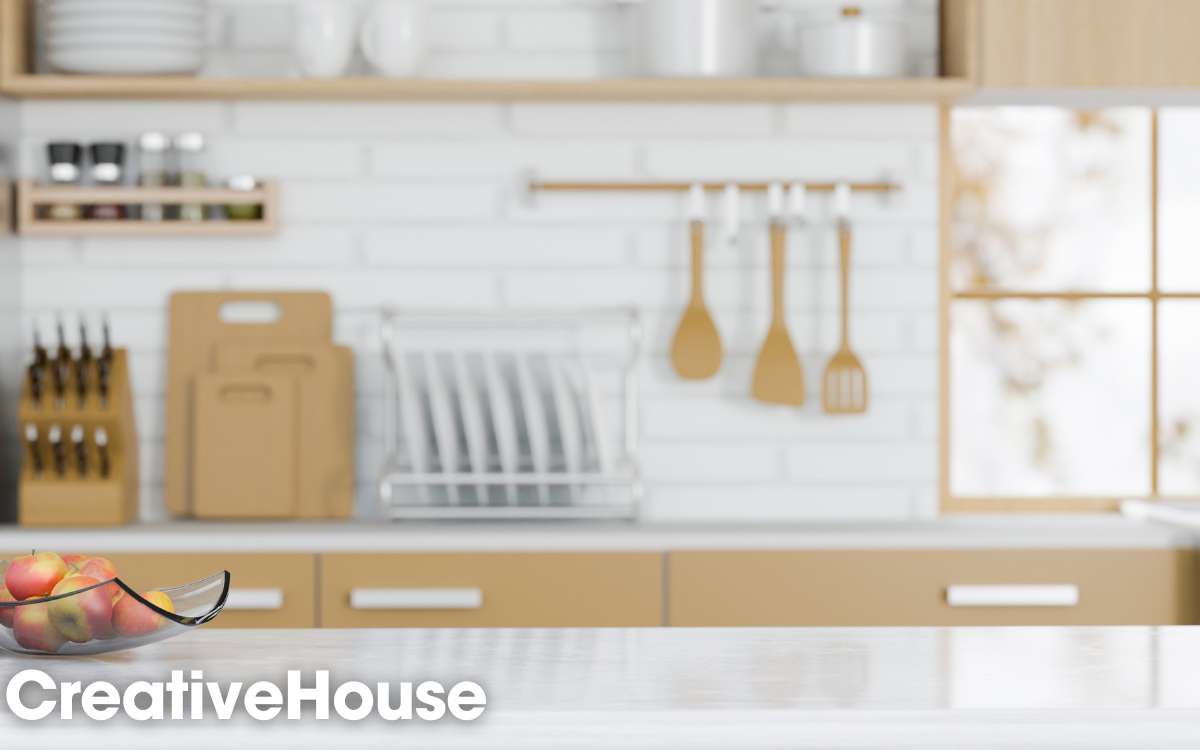
Understanding Oven Cleaner
Oven cleaners are chemical solutions designed to remove tough grease, grime, and food residues from oven interiors. Solvents, builders, surfactants, and sodium hydroxide are common components used in them to dissolve and break down difficult stains.
However, kitchen countertops made of materials like laminate or stone are especially vulnerable to damage from oven cleaners that contain caustic components like sodium hydroxide, as they may fade or scratch the surface upon contact. Preventing damage on counters requires avoiding spills or direct application.
Effect of Oven Cleaner on Kitchen Countertop Materials
While oven cleaner is designed to tackle tough grease and grime, its strong chemical composition can have adverse effects on various surfaces.
- Granite
Chemical Interactions:
Oven cleaner ingredients like sodium hydroxide can tarnish granite countertops, although they are generally more resistant compared to other surfaces.
Granite countertops are naturally inert and difficult to discolor, but prolonged exposure to oven cleaners can still cause damage.
Surface Damage:
Harsh chemicals in oven cleaners can wear off the layer of varnish from the surface of granite countertops, leading to potential damage.
Protection measure:
- Reseal granite countertops annually to safeguard against stains and maintain durability.
- Use a mild, non-chemical liquid detergent mixed with water on a clean cotton cloth for cleaning.
- Avoid harsh cleaning products containing acid or alkali.
- Refrain from using steel wool or scouring pads, as they can scratch the surface of granite countertops.
- Quartz
Resilience Against Oven Cleaners:
Quartz countertops are generally more resistant to the effects of oven cleaners compared to other materials.
However, even quartz can be affected by the toxicity of oven cleaners, so caution should still be exercised.
Protection measure:
- Opt for pH-neutral, specialized natural cleaners for quartz countertops.
- Avoid cleaners that could potentially harm the surface to maintain its integrity and shine.
- Marble
Sensitivity to Harsh Chemicals:
Marble countertops are sensitive to the harsh chemicals in oven cleaners.
The chemicals can damage the protective coating on marble surfaces, leading to potential discoloration and surface damage.
Staining and Etching Risks:
Oven cleaners can increase the risk of staining and etching on marble countertops.
Protection measure:
- It is recommended to avoid using oven cleaners on marble and instead use non-abrasive cleansers and mild soap for cleaning.
- Laminate
Tolerance to Oven Cleaner:
Laminate countertops are generally more tolerant of oven cleaners compared to other materials.
However, it is still important to exercise caution and follow proper cleaning guidelines to preserve the quality of the laminate surface.
Protection measure:
- Avoid using excessive water around the laminate’s seams to prevent warping or swelling over time.
- Use less corrosive cleaning products to disinfect laminate countertops
- Stainless Steel
Corrosion Concerns:
Stainless steel countertops are generally resistant to oven cleaners, but prolonged exposure can cause discoloration or damage to the protective coating on the surface.
Protection measure:
- Avoid excessive water and abrasive materials to prevent potential damage to the protective coating.
- Use a nylon sponge and warm, sudsy water for everyday cleaning.
- Avoid abrasive or acidic cleaners that can strip the sealer and etch the stone.
- Other Countertop Materials
Concrete:
Concrete countertops are generally more resistant to the effects of oven cleaners.
However, it is still important to follow proper cleaning guidelines to maintain the quality of the concrete surface.
Wood:
Wood countertops are sensitive to oven cleaners and can be damaged by the chemicals.
Avoid using oven cleaners on wood countertops to prevent discoloration, warping, or weakening of the structure.
Ceramic Tile:
Tile countertops can be sensitive to the chemicals in oven cleaners, and the top glaze can be eaten away by the chemicals.
Safe Cleaning Alternatives and Best Practices for Kitchen Countertops
When it comes to cleaning kitchen countertops, there are alternative methods and best practices that can help you maintain a clean and safe environment. Here are some options to consider:
- Natural Cleaning Solutions:
- Vinegar:
A mixture of white vinegar and water can be an effective and natural cleaning solution for many countertop materials. It can help remove grease and grime without causing damage.
- Baking Soda:
Baking soda is a gentle abrasive that can be used to scrub away stains and odors on countertops. It can be mixed with water to form a paste for tougher stains.
- Mild Detergents and Soaps:
- Mild Dish Soap:
Using a mild dish soap and warm water solution is a safe and effective way to clean most countertop surfaces. It is important to rinse thoroughly after cleaning to remove any residue.
- Proper Cleaning Techniques:
- Gentle Scrubbing:
Avoid using abrasive materials or scrub brushes with stiff bristles, as they can scratch or damage the surface of countertops. Instead, use soft cloths or non-abrasive sponges for cleaning.
- Prompt Cleaning:
Clean up spills and stains as soon as possible to prevent them from setting in and becoming more difficult to remove.
- Regular Maintenance:
Regularly wipe down countertops with a damp cloth or sponge to remove dirt and debris. This can help prevent the buildup of grime and make deep cleaning easier.
- Protective Measures and Sealants
- Sealant Application:
For certain countertop materials like granite or marble, applying a sealant can provide an extra layer of protection against stains and damage. Follow the manufacturer’s instructions for proper application and reapplication.
- Use Cutting Boards and Trivets:
To prevent scratches and heat damage, use cutting boards when preparing food and trivets or hot pads when placing hot pots and pans on countertops.
Frequently Asked Questions (FAQs)
Is it okay to use oven cleaner on wood countertops?
No. Oven cleaners can strip the finish and damage wood fibers. Stick to gentle cleaners suitable for wood surfaces.
Will oven cleaners harm stainless steel countertops?
Yes, prolonged exposure can cause corrosion. It’s best to use mild detergents or specialized stainless-steel cleaners.
Is it safe to use oven cleaner on marble countertops?
A: No. Marble is highly sensitive to acidic cleaners like oven cleaners, which can cause etching and staining.

